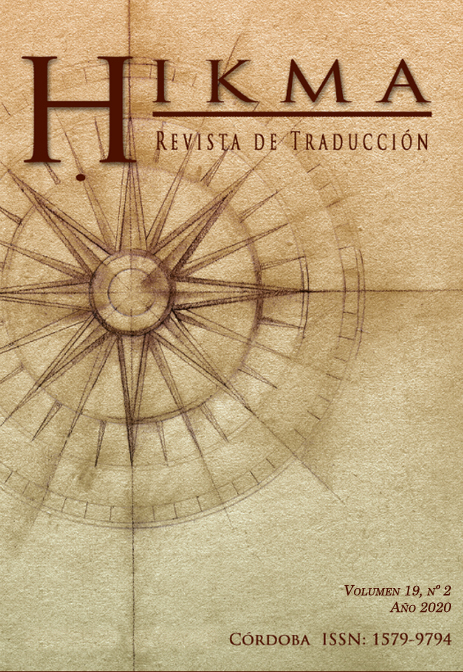Español
Main Article Content
Abstract
Abstract: This quantitative-qualitative exploratory study, of sequential-explanatory design, understands at a macro and micro level self-efficacy of English-Spanish Translation program students of Chilean higher education institutions. In a first quantitative phase, the General Self-Efficacy Scale was applied to 160 students among all the Chilean higher education institutions that teach the professional English-Spanish translation program, and for the subsequent qualitative phase, a triangulation of the Retrospective verbal protocol techniques and in-depth interview was conducted to 3 participants from different universities in the V region of Chile. The results indicate that the General Self-Efficacy Scale, despite its frequent use in the field of translation studies, has very little specificity to measure self-efficacy in translation students and, among the factors that have the greatest impact on the self-efficacy of English-Spanish translation students, we can find knowledge in different areas, teachers and classmates’ role, and physiological and emotional states.
Keywords: Self-Efficacy, Translation students, General Self-Efficacy Scale, Translation, Higher education.
Downloads
Article Details

This work is licensed under a Creative Commons Attribution-NonCommercial-ShareAlike 4.0 International License.
Authors who publish with this journal agree to the following terms:
1. Authors retain copyright and grant the journal right of first publication with the work simultaneously licensed under a Creative Commons Attribution License that allows others to share the work with an acknowledgement of the work's authorship and initial publication in this journal.
2. Authors are able to enter into separate, additional contractual arrangements for the non-exclusive distribution of the journal's published version of the work (e.g., post it to an institutional repository or publish it in a book), with an acknowledgement of its initial publication in this journal.
3. Authors are permitted and encouraged to post their work online (e.g., in institutional repositories or on their website) prior to and during the submission process, as it can lead to productive exchanges, as well as earlier and greater citation of published work (See The Effect of Open Access).

